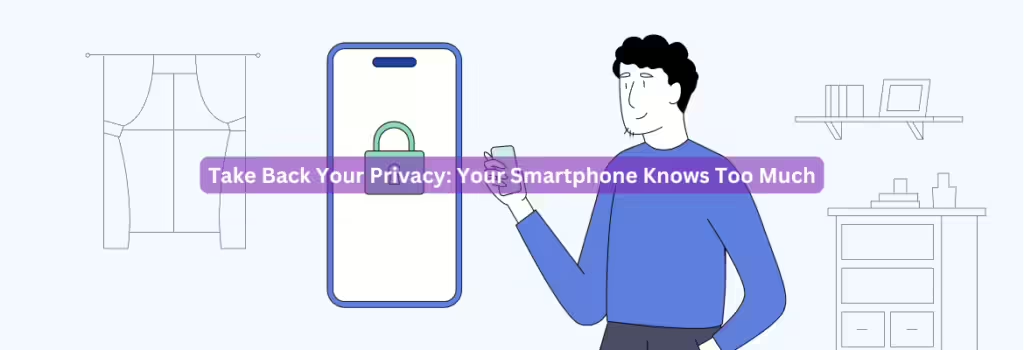Take Back Your Privacy: Your Smartphone Knows Too Much

Smartphones have become an inseparable part of our daily lives, storing everything from personal conversations to financial details. While they offer convenience, they also pose significant privacy risks. it’s crucial to understand how these devices track us and what steps we can take to protect our information.
Is Your Smartphone Really Spying on You?
The short answer is yes. While it may not be listening in on every conversation like a scene from a spy movie, your phone collects vast amounts of personal data—sometimes without your full knowledge or consent. Many of us assume that only basic information like call logs and text messages are stored, but modern smartphones track much more.
This data collection is usually marketed as a way to enhance user experience, but it also serves the interests of advertisers, tech companies, and, in some cases, even malicious actors. Let’s break down the most invasive ways your smartphone gathers and uses your information.
1. How Your Smartphone Tracks You
Your Location Data: More Than Just Directions
One of the most concerning forms of tracking is location data collection. Your smartphone pinpoints your whereabouts using GPS, Wi-Fi networks, and cellular towers to determine your position with startling accuracy.
While location tracking is helpful for navigation, weather updates, and local recommendations, it can also be exploited. Your phone logs where you go—whether it’s a doctor’s office, a protest, or a private meeting. In some cases, this information is sold to third parties or accessed by government agencies.
To reduce this risk, review and disable unnecessary location tracking in your phone’s settings.
Your Digital Activity: Every Move Is Monitored
Your phone doesn’t just know where you are—it also tracks what you do. This includes app usage, physical activity, and browsing habits.
At first, this data collection may seem harmless, but it plays a role in shaping personalized advertising, predictive analytics, and even political targeting. For example, if you spend a lot of time on fitness apps, you may start seeing ads for gym memberships or diet plans. In extreme cases, cybercriminals can exploit your data for harassment or blackmail.
To protect your privacy, regularly review app permissions and disable tracking where possible.
Sensitive Personal Data: More Than You Realize
Most people wouldn’t expect their smartphones to store their most intimate details—but they do. Many of us willingly provide this information through dating apps, religious and political apps, and shopping history.
The biggest risk? If this data is leaked in a security breach, it can be used for identity theft, exploitation, or even manipulation.
2. Your Smartphone and Health Data
Health data is among the most sensitive information we share, yet it’s often not as protected as it should be. Many of us use apps that track our physical activity, diet, and medical conditions, such as period trackers or mental health apps.
For example, a woman using a period tracker who logs a missed period might suddenly be flooded with ads for baby products. If she’s using a shared device, this could prompt sensitive conversations she may not be ready to have.
Similarly, searches related to mental health, such as anxiety or depression, could be sold to advertisers or used to manipulate behavior. With the rise of wearable health devices, this information is more available than ever, making it critical that consumers understand who has access to their data and how it’s being used.
3. Digital Assistants and Voice Data
Voice assistants like Siri, Google Assistant, and Alexa are designed to make life easier by responding to voice commands. However, they are always on standby, which means they may pick up more than just your intended requests.
Past cases have revealed that some companies allow human contractors to listen to user recordings to improve speech recognition. While privacy policies have been updated, the fact remains that voice data is valuable and can be exploited by third parties.
If you frequently use voice assistants, consider reviewing your privacy settings or disabling them when not in use.
4. How to Reduce Smartphone Spying
Manage App Permissions
Regularly review and restrict which apps can access your location, camera, microphone, and other sensitive data.
Use a VPN
A Virtual Private Network (VPN) encrypts your internet traffic, making it harder for third parties to track your online activity.
Turn Off Location Tracking
Disable location services when not needed and prevent apps from constantly tracking your whereabouts.
Limit Digital Assistant Usage
Mute or disable always-on listening features to reduce unwanted voice data collection.
Smartphones are undeniably powerful tools, but they come with significant privacy risks. By taking these steps, you can regain control over your digital privacy and minimise how much data your smartphone collects. Make a conscious effort to protect your personal information.







